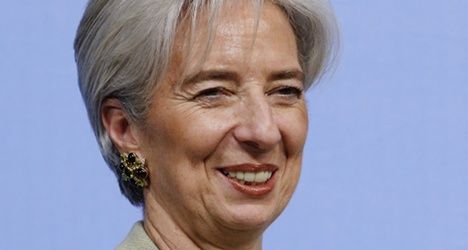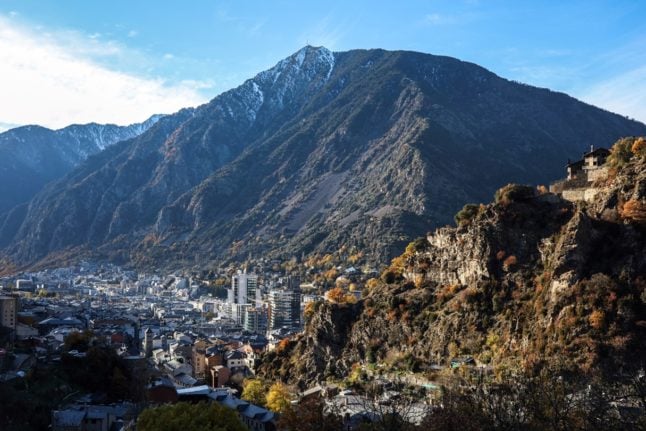In Cairo, Foreign Minister Nabil al-Arabi announced Egypt’s support for Lagarde, who is running against Mexico’s central bank chief Agustin Carstens and dark horse candidate Stanley Fischer, governor of the Bank of Israel.
“The Egyptian government supports the candidacy of French Finance Minister Christine Lagarde for the post of managing director of the IMF,” the official MENA news agency quoted Arabi as saying, after he met Lagarde in Cairo.
The French minister said she was pleased with the “very affirmative” support she received in the Egyptian capital.
“In this region, I have the honour of being supported by Bahrain, and of having the support of other Arab countries that have expressed themselves,” she told reporters.
The United Arab Emirates also threw its weight behind Lagarde, with Finance Minister Obeid Humaid al-Tayer hailing the French minister’s central role at G20 meetings under the rotating presidency of France.
In Indonesia, Finance Minister Agus Martowardojo backed Lagarde, describing her as a “professional person, very skilful in interacting between organisations, has high integrity and expertise.”
In Cairo, Lagarde said that under her leadership, the IMF would be dedicated to economic development in north Africa and the Middle East, where pro-democracy protests have swept the region.
She said earlier that she was “confident” of her chances of heading the IMF, while declining to comment on her Israeli rival for the post.
“I am very confident, particularly after several meetings here in Egypt,” Lagarde told reporters after talks with her Egyptian counterpart Samir Radwan. “We have had excellent meetings.”
Egypt is on the 24-member executive board which is due to reach a consensus on naming a new IMF chief at the end of this month.
On Saturday, Bank of Israel Governor Stanley Fischer – an American economist who took Israeli citizenship and previously held the number two post at the IMF – announced that he too was in the race.
Lagarde, who on Saturday was in Saudi Arabia where she also expressed confidence, declined to comment on Fischer’s candidacy, saying only: “He has past experience as the number two at the IMF… Everybody is free to file a candidacy.”
Israeli Finance Minister Yuval Steinitz told Israel army radio Fischer’s chances of being elected were “not great.”
“One problem is his age. Fischer is 67, which is two years older than the demands for the position,” Steinitz said.
“I hope they find a way around it, it’s not a suitable criteria in this day and age.”
The IMF’s top post opened unexpectedly after Frenchman Dominique Strauss-Kahn resigned on May 18 to fight sexual assault charges in New York.
Despite a whirlwind world tour that has taken her from Brasilia to Beijing via New Delhi, Lagarde has failed to lock official backing from emerging powers in the race to become managing director of the world’s crisis lender.
Emerging nations have baulked at Europe’s 65-year grip on the top job at the Washington-based institution, calling the arrangement outdated.
Europe has come out in force for Lagarde while the United States and Japan, the IMF’s other power brokers, remain publicly uncommitted.



 Please whitelist us to continue reading.
Please whitelist us to continue reading.